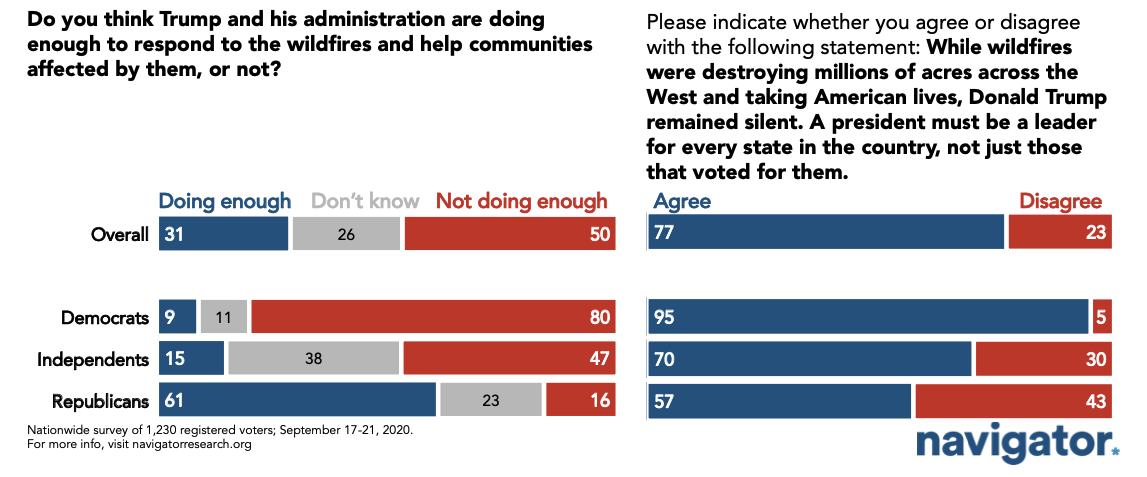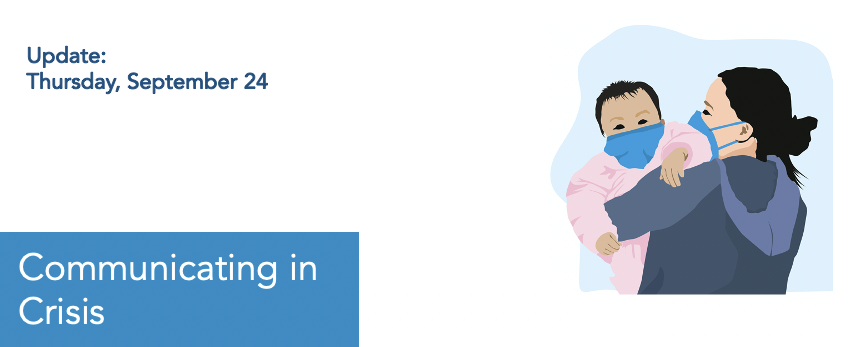Welcome to NAVIGATOR – a project designed to better understand the American public’s views on issues of the day and help advocates, elected officials, and other interested parties understand the language, imagery, and messaging needed to make and win key policy arguments.
This release features findings from a national online survey of 1,230 registered voters conducted September 17-21, 2020.
Key takeaways
- Americans are split on whether Biden or Trump is more likely to win the election, but those who think Trump is going to win are more confident than those who think Biden will.
- Top concerns about the November election include results differing in the days after Election Day from the night of the election, voter suppression, and foreign interference.
- Americans say climate change is at least partially to blame for recent extreme weather events, and many believe Trump has failed to do enough to help those affected by wildfires.
Americans Split on Who They Believe Will Win in November
The public is split evenly on whether they think Biden or Trump will win the presidential election, consistent with the last month of data on the topic.
- Democrats (82% Biden) and Republicans (88% Trump) are consolidated behind their party’s nominee in belief of victory in November, while independents (54%) lean slightly towards expectation of a Biden victory.
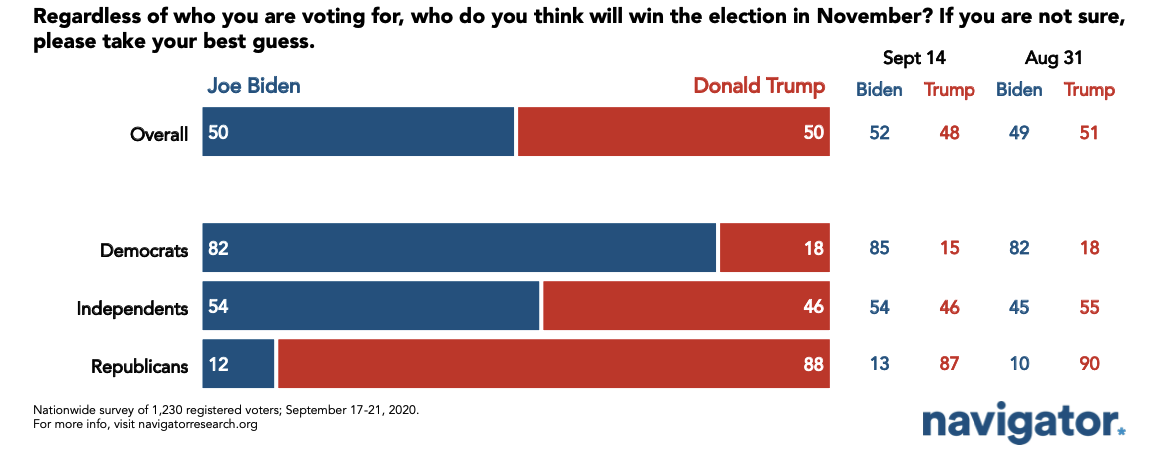
While Voters Are Split on Who Will Win, Those Who Say Biden Are More Likely To Say There’s a Chance It Goes Other Way
Americans who believe Biden is going to win are more reluctant to say that he will “definitely win,” while a majority of those who think Trump will win say he will “definitely win.”
- Among Democrats, two in five who think Biden is going to win think he definitely will win, while 62% of Republicans who think Trump is going to win think he definitely will.
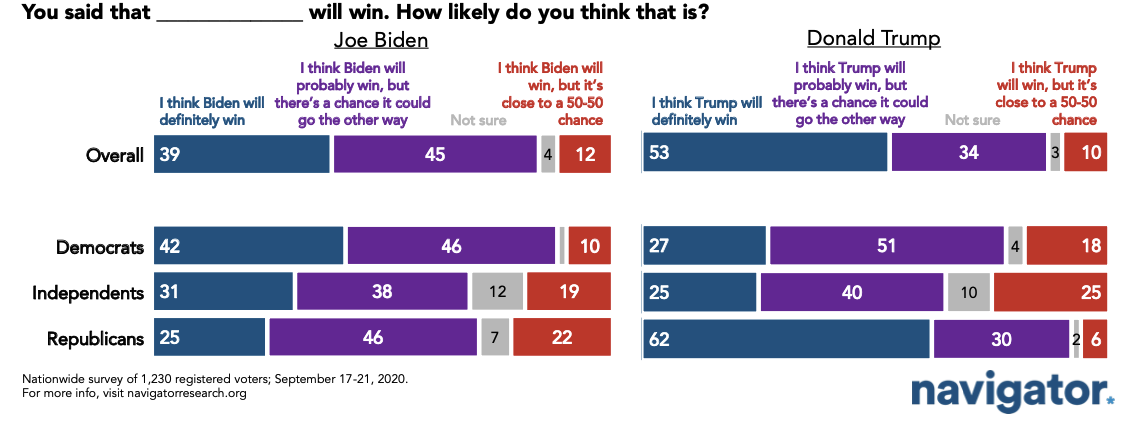
Americans Who Say They Intend to Vote Also Say They Know When, Where, and How They Will Be Casting Their Ballot
Biden and Trump voters are equally likely to have a plan for voting in the November election – though only two in three independents say they have a plan, and more than one in three say they do not yet have a plan.
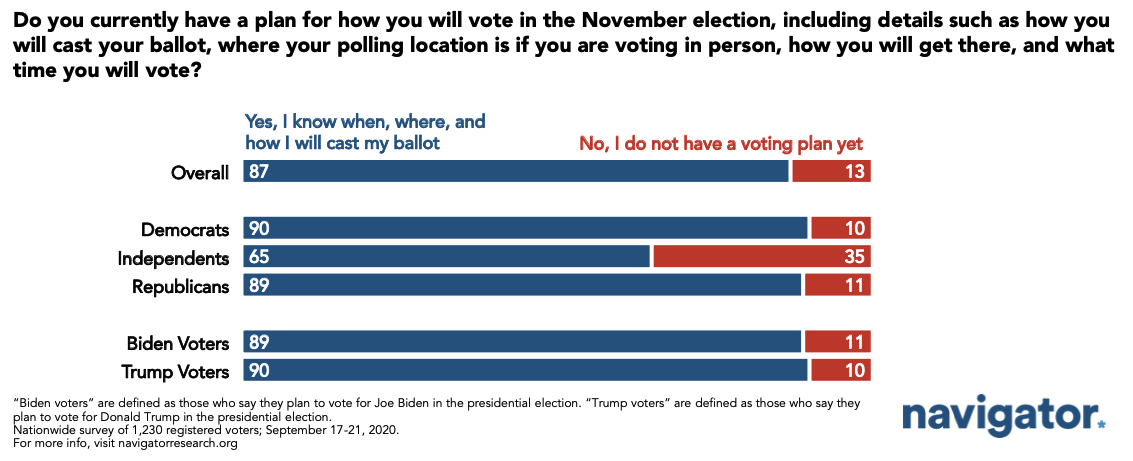
Two in Five Intend to Vote By Mail
When asked how they intend to cast their ballot, a plurality say they are voting by mail or absentee ballot, while more than a third intend to cast their ballot in person on Election Day.
- Among Americans 65 and older, 53% say they intend to vote by mail.
Majority of Mail Voters Have Already Requested Their Absentee Ballot and Most Plan to Return Ballot Right Away
Two in three Americans who intend to vote by mail have already submitted a request for a mail-in ballot, and while 59% of Americans are not voting by mail, 31% of Americans say they are voting by mail and will return their ballot immediately upon receiving it.
Growing Share Expect It Will Take Longer Than a Day to Know Outcome of Presidential Election
Three in five say it will take longer than a day to know who won the presidential election, up double digits from three weeks ago in August.
- In a follow-up question, 58% say that we will know within a couple of days or sooner, while 13% say it may take a few weeks or longer until we have the results.
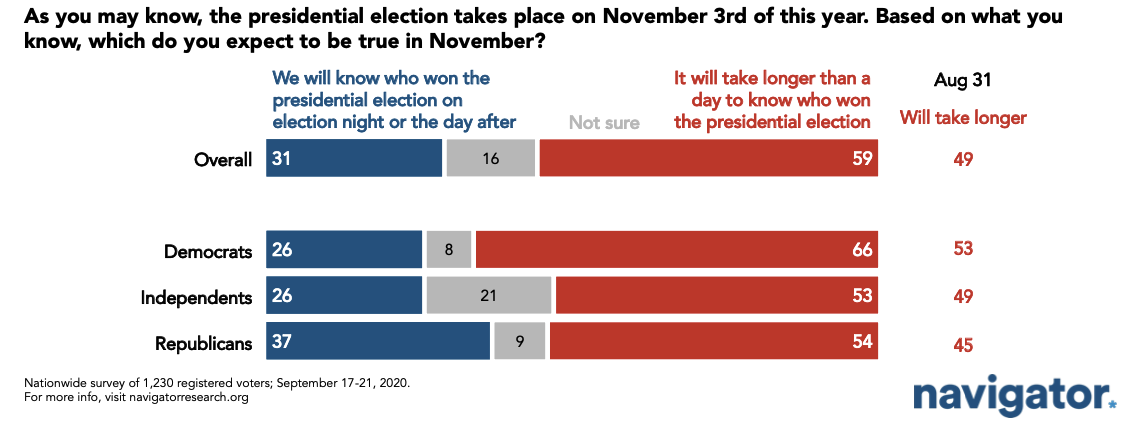
Most Americans Are Confident That Both November Results and Their Own Ballot Will Be Counted Fairly
While the vast majority of Americans are confident that both their own vote and the results of the November election overall will be counted fairly, there is greater confidence in personal ballots being counted accurately.
- The biggest partisan gulf between belief one’s own ballot and the election results at large will be counted accurately exists among Republicans, with 74% confident about the election, 85% their own ballot.
Top Concerns About November Election: A Long Count, Voter Suppression, Foreign Interference
While Americans across partisanship are worried about Election Night results changing in the days after, Democrats are more worried about voter suppression and foreign interference, and Republicans about voter fraud.
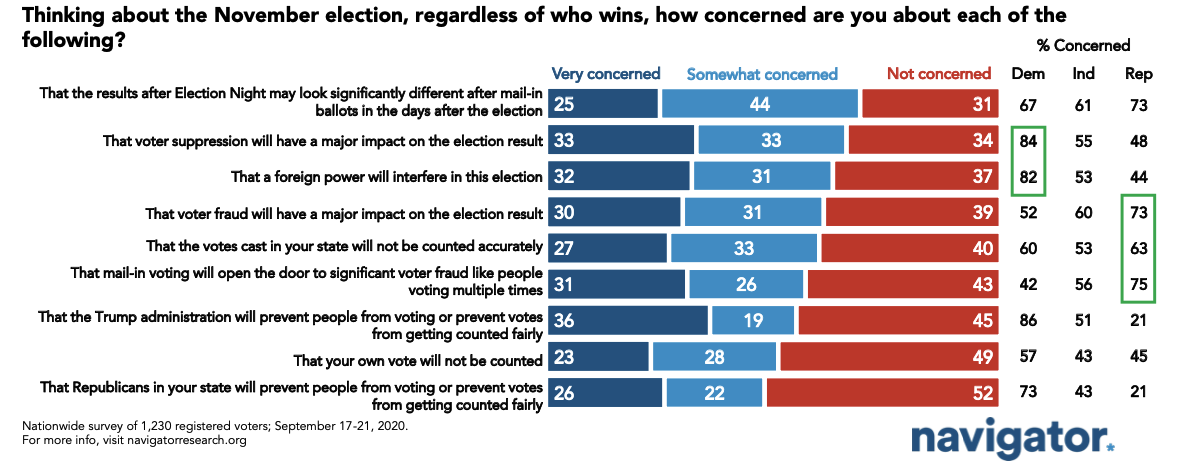
Vast Majority Agree More People Voting is Good for Democracy, Exercising Vote Is Important Civic Duty
Three in four Americans agree “more people voting is good for democracy,” including two in three Republicans who “strongly agree.”
- Among those voting in person on Election Day, 49% agree that there is “no bigger risk of fraud” with mail voting than votes cast in person.
Americans Overwhelmingly Prefer Campaigns Avoid Door-to-Door Canvassing
Seven in ten Americans say that campaigns should be focusing on “no-contact” communications this election cycle while only one in six say campaigns should be doing traditional door-to-door canvassing this year.
- Among Americans 65 and older, 70% say that campaigns should focus on “no-contact” communications.
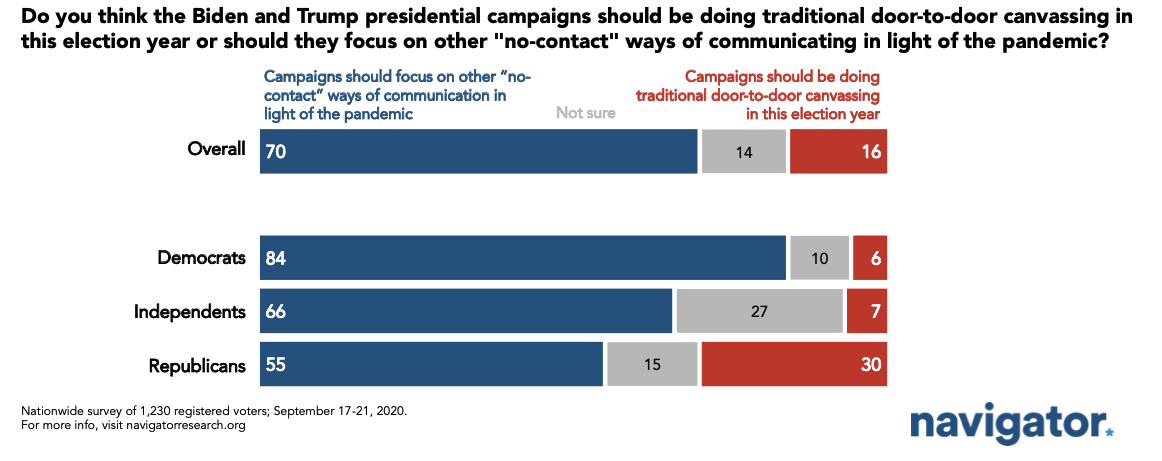
More Americans Have Unfavorable View of Mike Pence Than Kamala Harris
While less than two in five have unfavorable views of Kamala Harris, nearly half have unfavorable views of Mike Pence.
- Donald Trump is 15-points underwater on favorability (42% favorable/57% unfavorable) while Joe Biden is 7 points in the positive (52% favorable/45% unfavorable).
Worries Over Extreme Weather Events on Par With Other Major Issues Like Coronavirus and the Economy
Americans are most worried about people in nursing homes being vulnerable to coronavirus, the economy falling into a recession, and extreme disasters like wildfires and hurricanes.
- Both Democrats (93%) and Republicans (73%) are worried about extreme weather disasters.
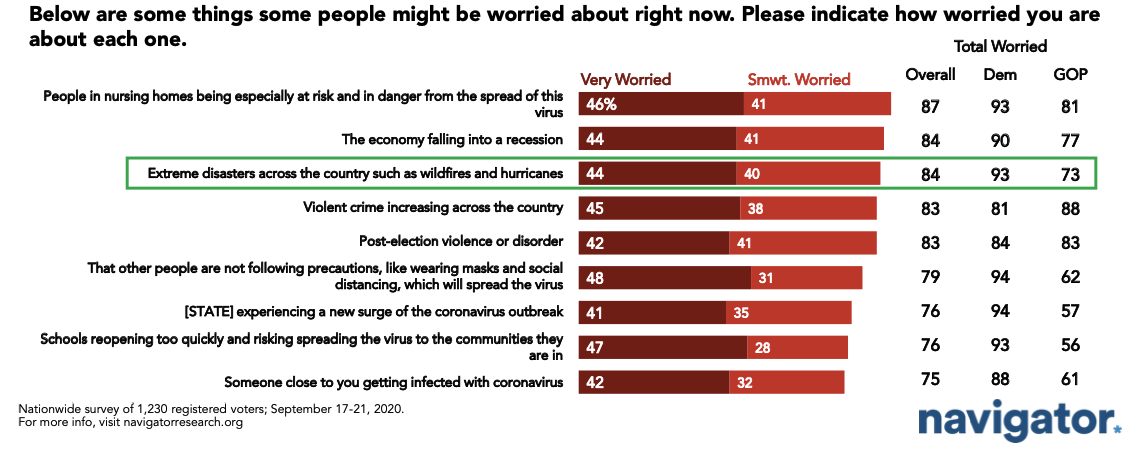
Two Thirds Believe Climate Change Probably or Definitely Contributed to Recent Wildfires
Two in three say that climate change has contributed to the recent wildfires, and nearly two in five say it has “definitely” contributed.
- Republicans are split on the issue, with a 6-point gap between the share who say that climate change has contributed (42%) and those who say it has not (48%). Only 27% say it has definitely not contributed.
Americans Say Trump “Not Doing Enough” on Wildfires and Agree He Is Remaining Silent, Not Helping the Situation
Half of Americans say that Trump and his administration are not doing enough to respond to the recent wildfires and more than three in four agree with a statement criticizing his response.
